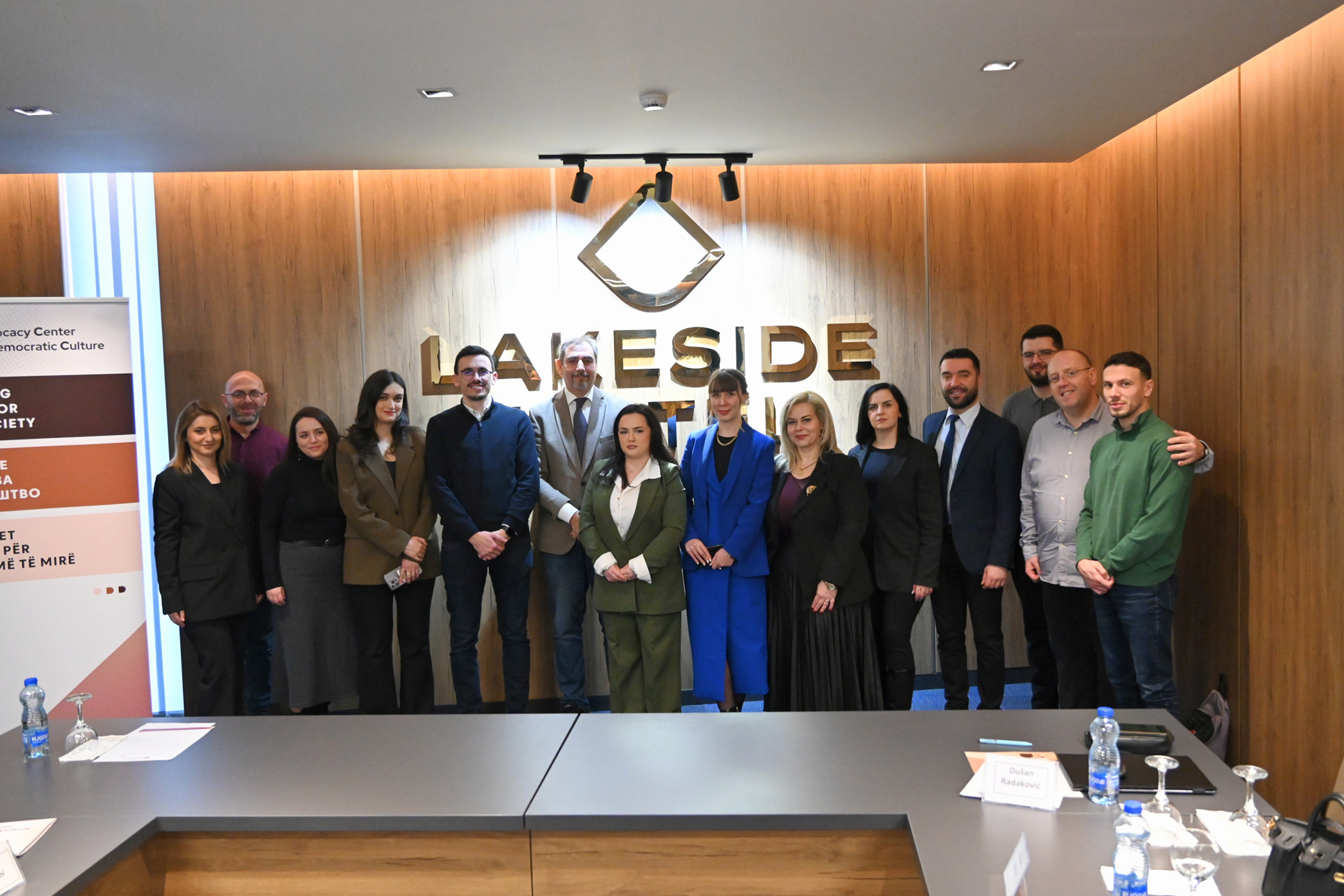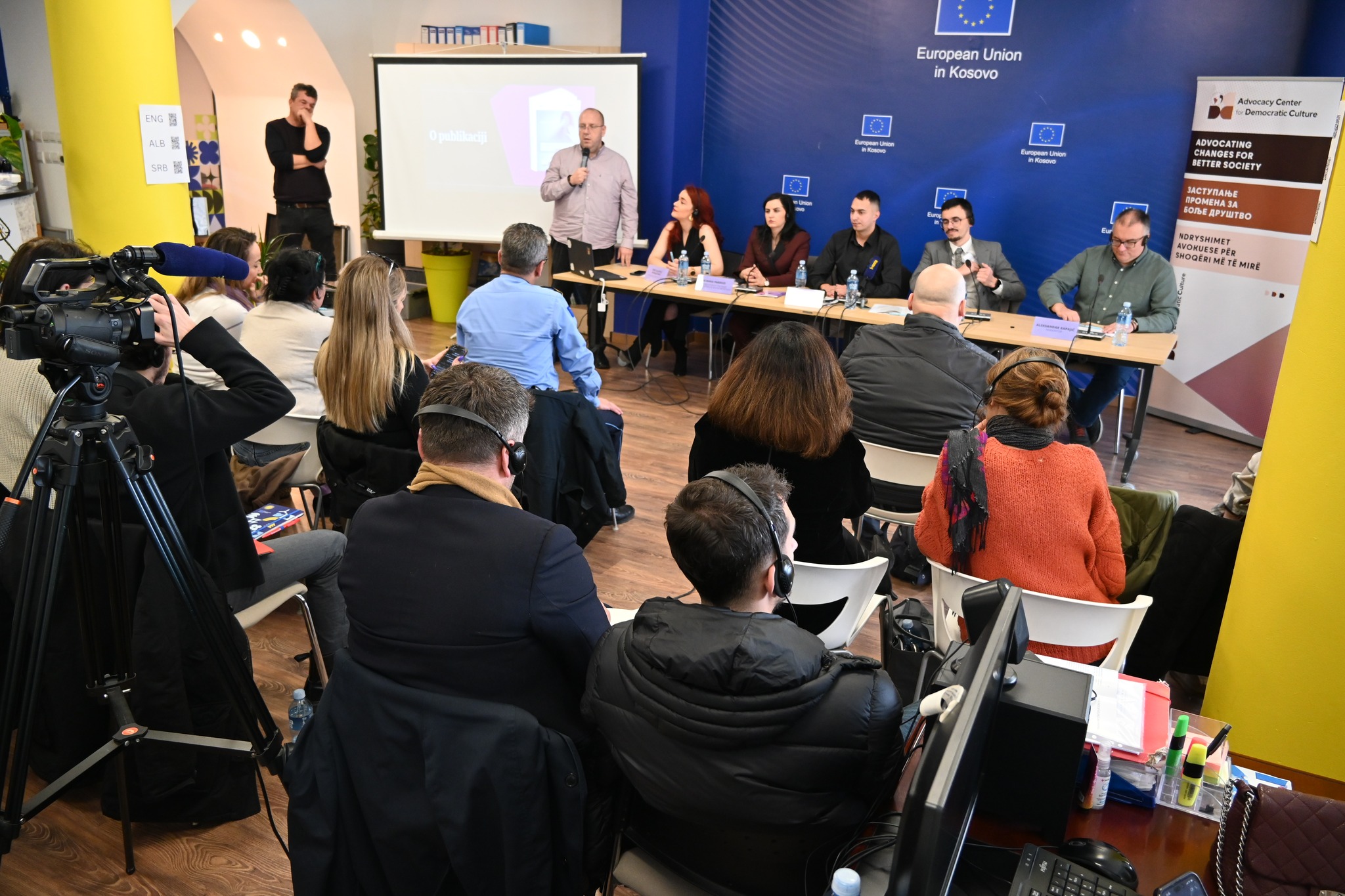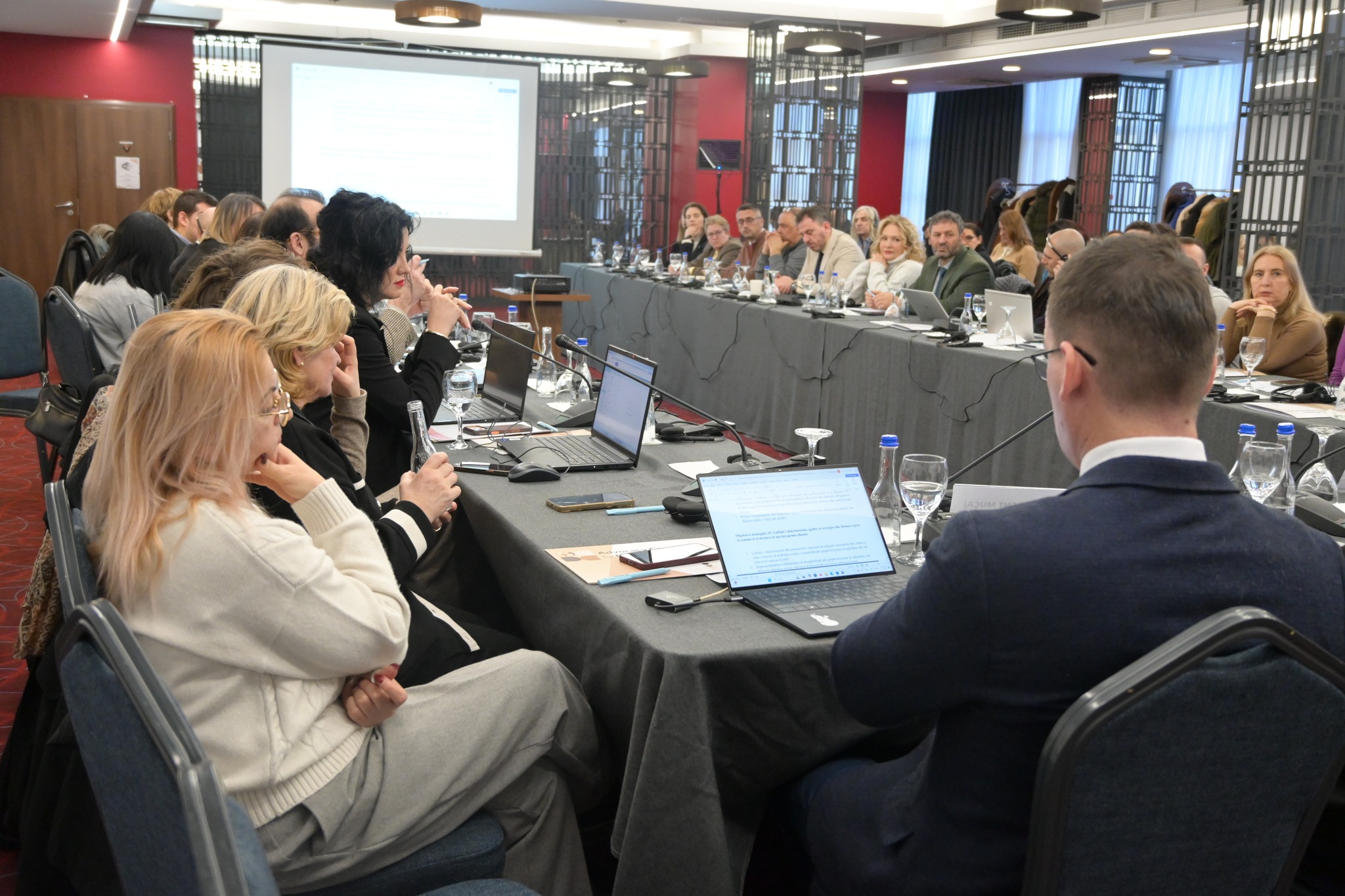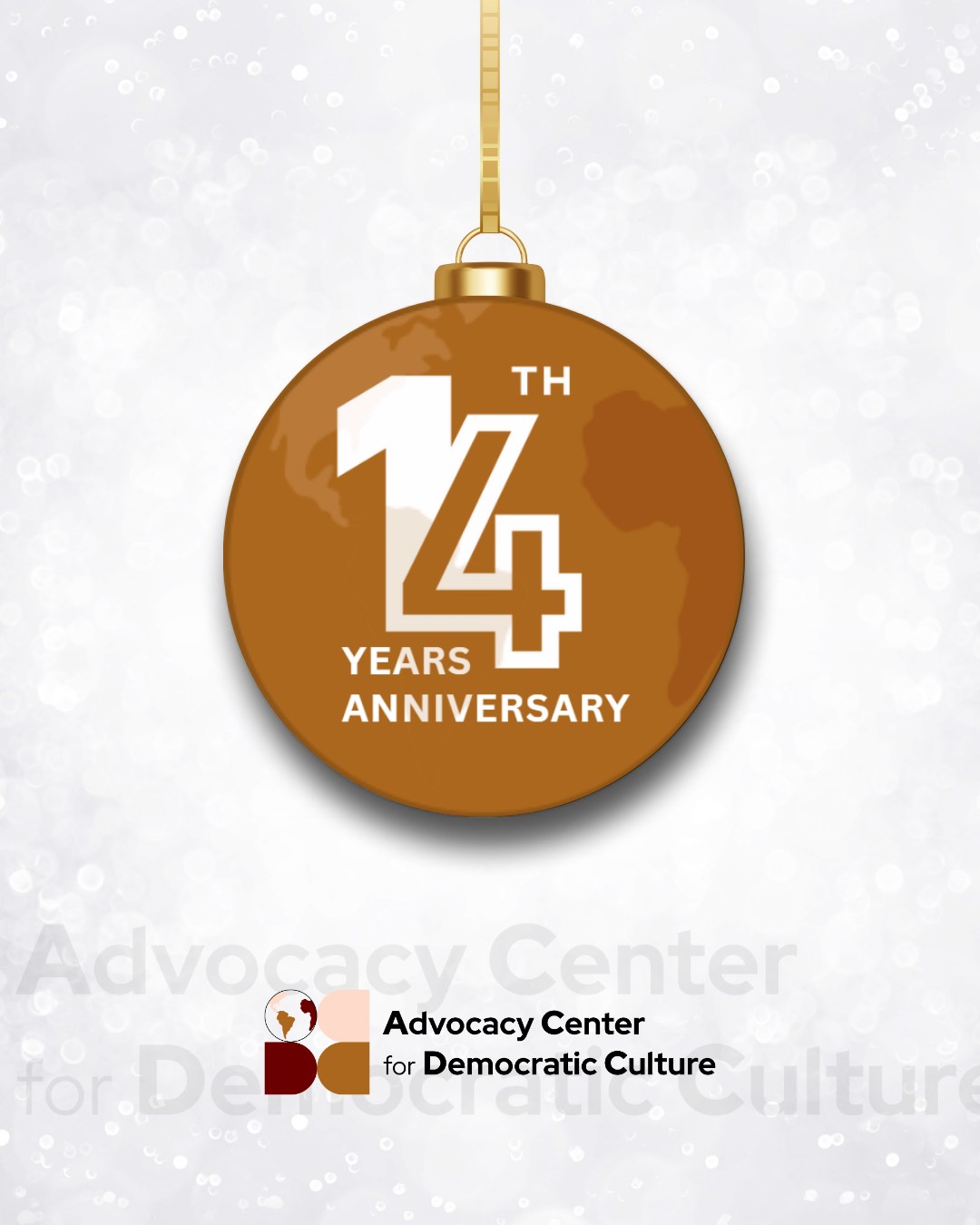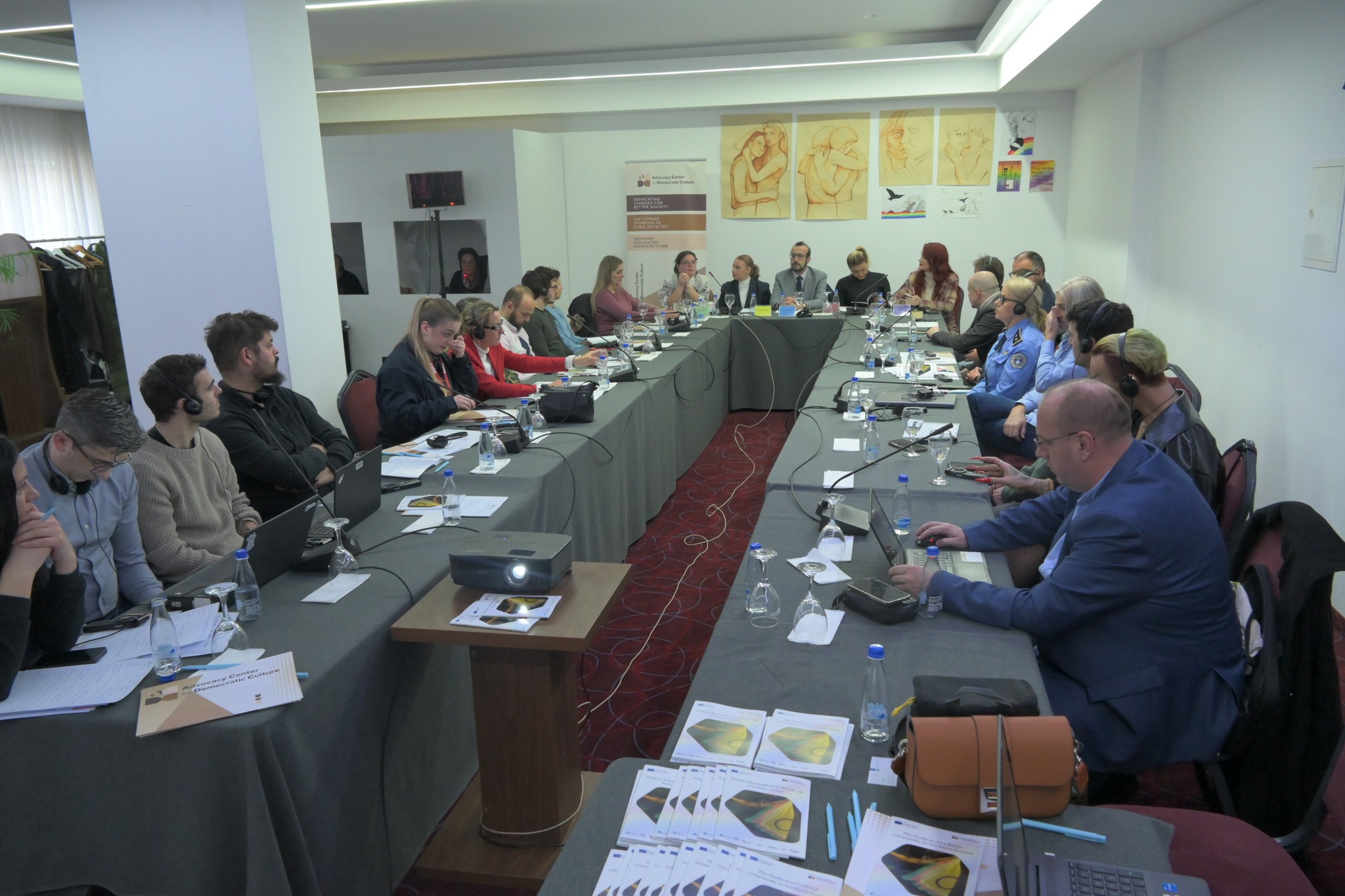01.06.2022. » 09:24
Op-ed - Promotion of reading in Kosovo
"There are worse crimes than burning books. One of them is not reading them"
Ray Bradbury
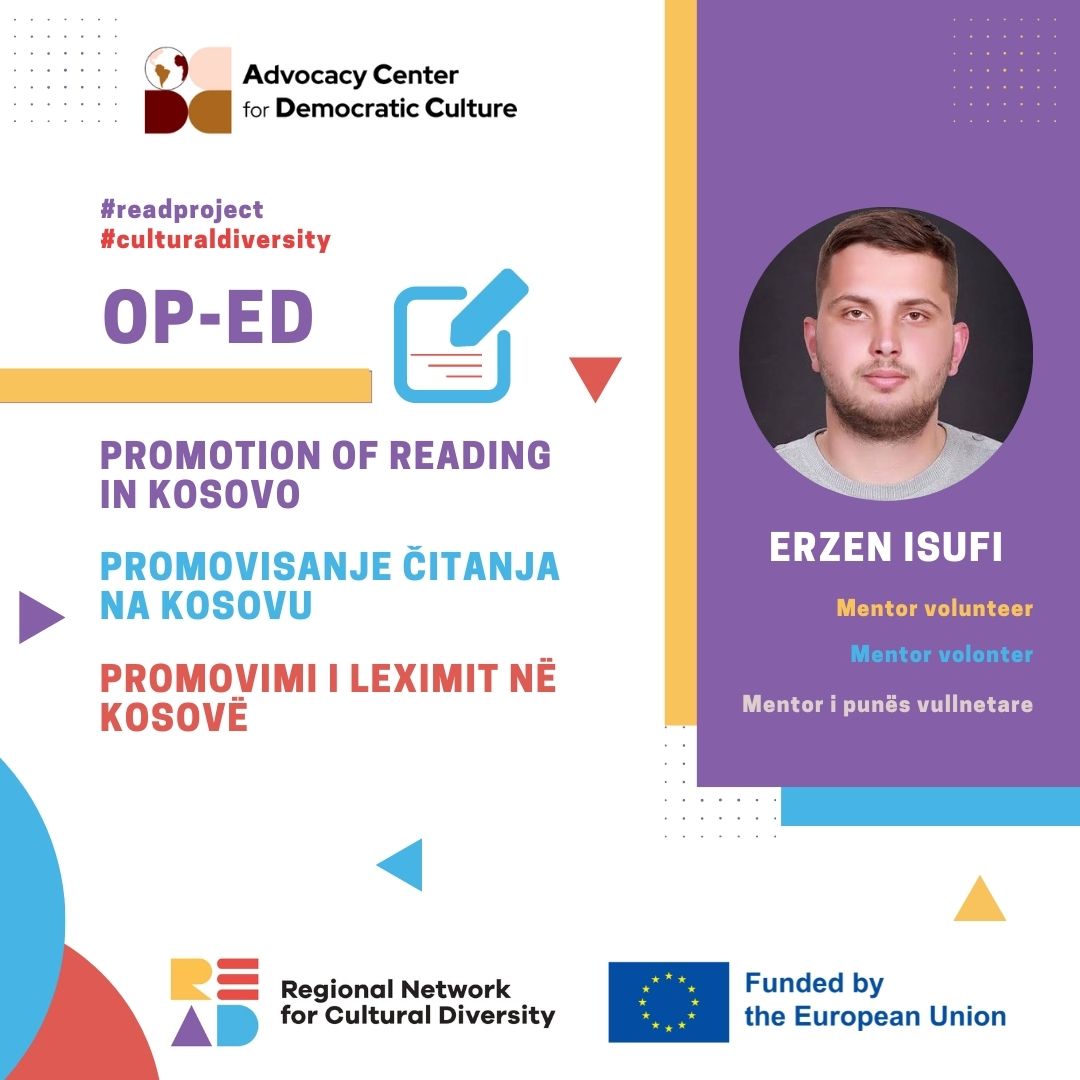
"There are worse crimes than burning books. One of them is not reading them"
Ray Bradbury
The promotion of reading includes methods that encourage people to read or expand their aspects of reading. Hence, it is essential to actively stimulate oneself, give reading tips, and make it easier to choose books to read. The promotion of reading includes activities aimed at creating favorable conditions for reading, encouraging reading, and enjoying it. As stated in the quote above, the most severe sin is to remain uninformed about the possibility of reading rather than burning books. Therefore, it is up to each person to do their best to promote reading.
Developed countries continue to face many challenges in the education system due to the emerging circumstances in postmodern societies. The development of information technologies and numerous electronic platforms with rich information has essentially raised the issue of traditional education methods, marking a significant decline in the abstraction of knowledge from reading books. Unlike developed societies, societies in the process of development, especially transition countries such as Kosovo, have lost track of the process of adapting to new circumstances. Moreover, there is an evident discrepancy between the purpose of the curriculum, the existing conditions, and the established practice that results in “modern illiteracy”.
From 1999 until today, there have been numerous attempts to reform the education system in Kosovo by invoking the highest international standards; however, no attempt has succeeded in motivating young people to read and visit libraries. The promotion of reading in this part is also lacking. According to some media reports, the countries in the region where books are least published are Albania, Bosnia and Herzegovina, and Kosovo. Some data from the National Library of Kosovo indicate that about 652 titles of books are being published in a year - per million inhabitants.
We already have bookstores and libraries in Kosovo that offer different headings from various fields. What is considered the most problematic is the low and concerning level of reading culture. Our young people practically read barely when they need to pass a test or exam, seldom because of the pleasure that reading provides. Reading and motivating young people to read are crucial factors in increasing their learning performance and professional development. What I find even more depressing is that people who read constantly, and maintain a culture and reading habits, are often victims of numerous bullying by society. Unfortunately, young people can hardly understand the essence of reading, the importance and benefit they can get from it.
This attitude towards books is improperly formed because reading starts in early childhood, in the family, continues in the social circle, and gets its final shape in school. In rare cases, all three settings (family, surroundings, and school) are compatible and support motivation to read, learn and study. Nevertheless, the family should ingrain a desire to read by turning it into a pleasant activity and a necessity of life. On the other hand, the school imposes reading on young people as an obligation, and from that obligation, the habit of reading is gradually created. In the case of our society, this remains just a wish! Even the PISA test showed that the reading level and comprehension among 15-year-olds in Kosovo are poorer than the average level in other countries. According to the OECD, Kosovars scored an average of 353 points in reading comprehension, while the average of other countries was 487 points. It is worth noting that literacy has been recognized as a human right for more than 50 years in several international declarations and initiatives, including UNESCO, which has promoted literacy as a right since its inception.
It is still immensely relevant that "shelves with books in Albanian" are very poor. This was probably one of the reasons why we are in this situation. However, with the social developments that have taken place, reading in English is no longer a problem for a significant part of our people. This even has positive effects for such individuals as it only enhances language and communication competence. Technology has also increased the ability to access different books and even translate them using various applications. In many cases, this digitalization has led us to think, and even to suspect, that it poses a threat to books in the printed version. Fortunately, there are still members of society who fanatically maintain their love for books and the smell of books.
So far, I have presented the promotion in general and the situation in Kosovo in terms of reading, and now I will present some methods that could help promote reading:
Organizing book fairs, rewarding regular readers, and visiting schools. Libraries should have a plan to promote reading and motivate young people to read and work with staff to find a variety of effective methodologies for “infusing” reading pleasure.
Furthermore, they have to equip themselves with the latest, best-selling contemporary titles, and then provide a convenient and comfortable environment for readers, etc. Similarly, there should be reading corners in cities where people can take a book with themselves and take books from the corner as well. These reading corners should have employees who would be responsible for the books and delivering them. Books should be borrowed from the corner only during the individual's visit to the corner and, due to security reasons, should not be taken to other rooms.
Schools should organize reading clubs to foster a community of readers that nurtures connection through shared reading and discussion.
• Club members to choose books collectively - this encourages students to step out of their comfort zone and explore new genres.
• Collaboration with the local library - Local library staff are invited to the school to introduce students to the books, programs, resources, and services available. Help them get a library card and show them the ways they can use the library to their advantage.
• Promoting reading aloud - students are invited to read aloud their original writings in front of peers, teachers, or parents. This helps promote their work and encourages further self-confidence and motivation.
• Give students a chance to revisit their favorite book - students can make a movie version, draw, display with photos or even find other forms for their favorite movie. This is an opportunity for them to show how they envisioned characters and events. They can even put a new point or twist on the plot they would like to see.
• Mysterious choice - books are wrapped or placed in a box that is no different from children and mysteriously chooses a book. So they step out of their comfort zone and meet other authors and new genres.
• Time for independent reading - students are given about 15-20 minutes a day to read books of their choice. A discussion is then initiated to measure student progress. The teacher must also come together to create a good role model for students.
• Organizing a book fair - promoting reading as a passion, not a task. Parents are also invited to visit, encouraging reading at home.
• Reading diary - students are asked to keep track of what and how much they have read, ask questions, or give comments to review them after completion.
These are just some of the ways to promote reading, but the desire and motivation to read should be instilled in the "mentality" of our society. They must be grazed from birth into the family bowels and continue for the rest of our lives.
Latest news

